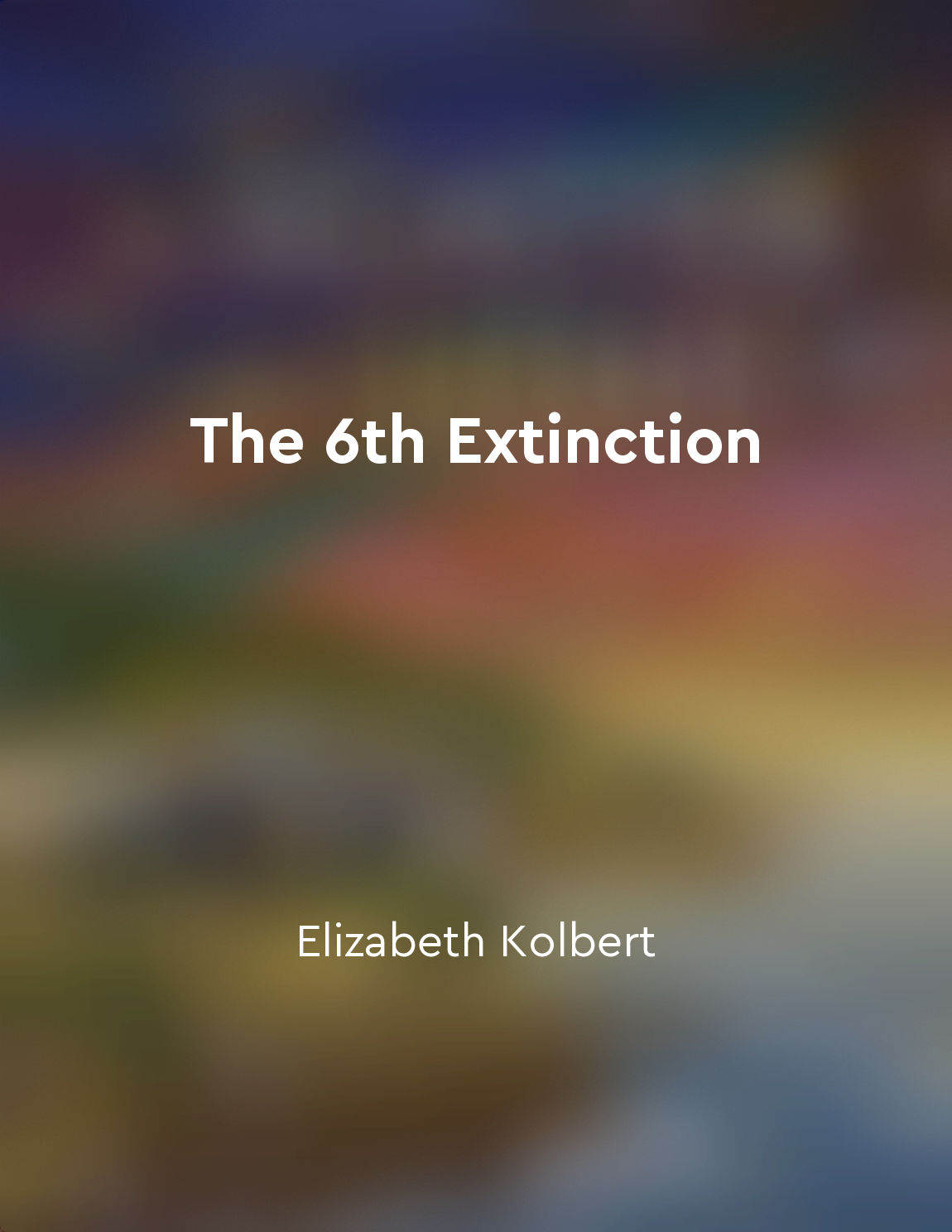Pollinators are crucial for plant reproduction and food production from "summary" of Bringing Nature Home by Douglas W. Tallamy
The relationship between plants and pollinators is essential for the survival of both species. Without pollinators, plants would not be able to reproduce, which would have far-reaching consequences for ecosystems and food production. Pollinators play a crucial role in plant reproduction by transferring pollen from one plant to another, allowing for fertilization and the production of seeds. This process is essential for the genetic diversity of plant populations, as it allows for the mixing of genetic material between different individuals. This genetic diversity is important for the adaptation and evolution of plant species in response to changing environmental conditions. Without pollinators, plants would be limited in their ability to adapt and survive in a dynamic and ever-changing world. In addition to their role in plant reproduction, pollinators are also essential for food production. Many of the crops that humans rely on for food, such as fruits, vegetables, and nuts, depend on pollinators for their reproduction. Without pollinators, these crops would not be able to produce the fruits and seeds that we rely on for sustenance. The decline of pollinators poses a serious threat to both plant species and food production. Factors such as habitat loss, pesticide use, and climate change have contributed to the decline of pollinator populations around the world. As pollinator populations decline, the ability of plants to reproduce and produce food is compromised, leading to negative impacts on ecosystems and human society. It is crucial that we take action to protect and conserve pollinators to ensure the health and stability of ecosystems and food production systems. By supporting pollinator-friendly practices, such as planting native plants, reducing pesticide use, and creating habitat for pollinators, we can help to ensure the survival of both pollinators and the plants that rely on them for reproduction and food production.Similar Posts
Some redwoods can grow over 300 feet tall
The redwoods of California are some of the tallest trees on Earth. They can reach staggering heights that seem to defy gravity....

The interconnectedness of species makes extinction a complex issue
The intricate web of life on Earth is a delicate balance that has evolved over millions of years. Each species, no matter how b...
The towering giants create their own weather patterns
The towering giants of the redwood forests are so immense that they have the power to shape their own weather patterns. These m...
Earth is a unique planet in our solar system
Earth stands out as a singular entity in our solar system, a planet unlike any other. Its remarkable features make it a haven f...
Sustainable agriculture is the way forward
In Silent Spring, Rachel Carson explores the detrimental effects of pesticides on the environment and advocates for a shift tow...
Farmers and gardeners can help support pollinators by growing a variety of flowers
To help protect our vital pollinators, farmers and gardeners can play a crucial role by planting a diverse array of flowers. By...
Bees rely on flowers for food and play a crucial role in pollination
Bees are intimately connected to flowers in a symbiotic relationship that is essential for their survival. Flowers provide bees...
Monocultures lack the diversity needed to support wildlife
Monocultures are like ecological deserts for wildlife. They lack the diversity needed to support a wide range of species, which...
The decline of pollinators threatens our food supply and biodiversity
The world of pollinators is vast and diverse, with thousands of species playing crucial roles in the ecosystem. From bees and b...
